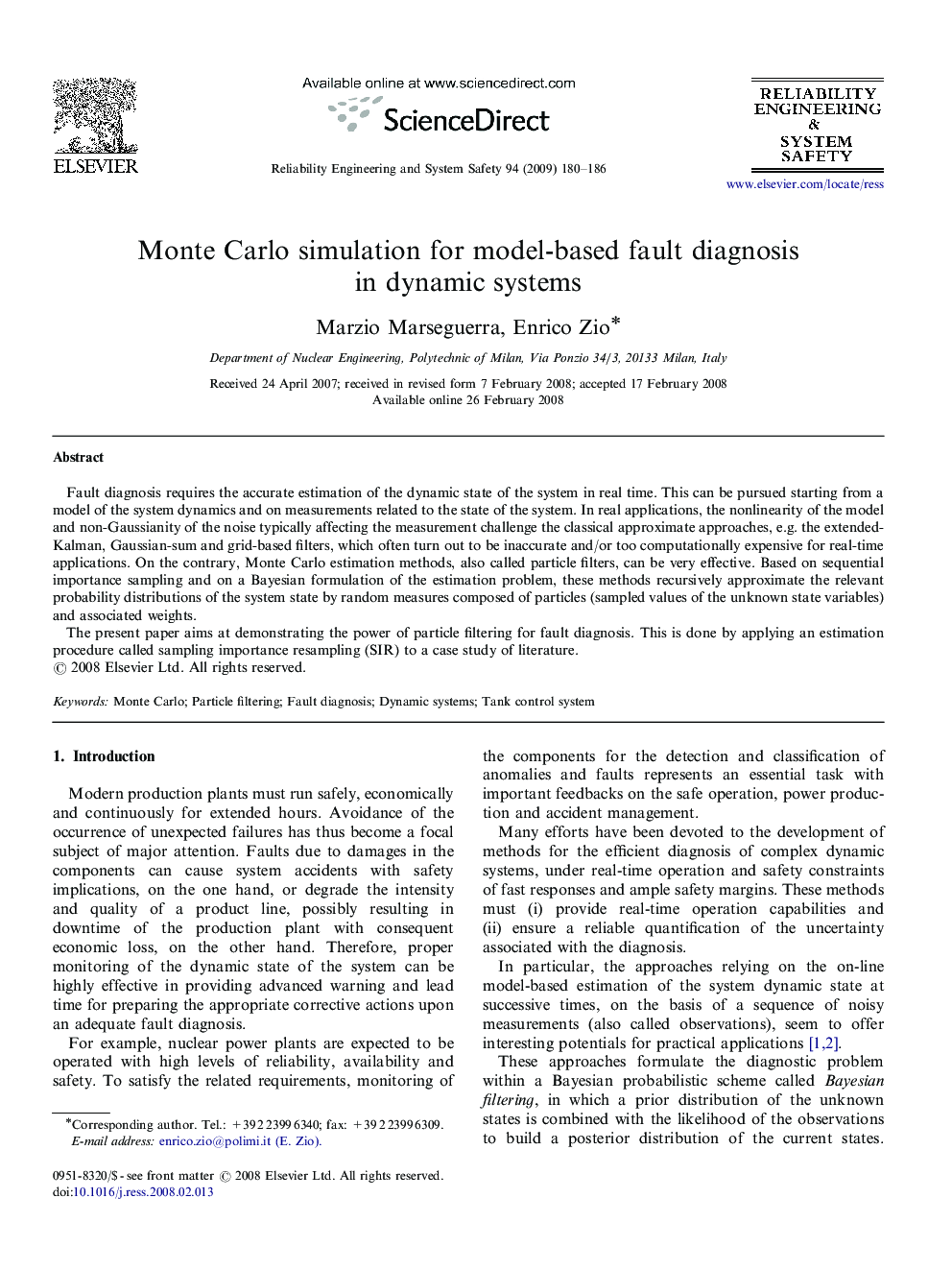| Article ID | Journal | Published Year | Pages | File Type |
|---|---|---|---|---|
| 805956 | Reliability Engineering & System Safety | 2009 | 7 Pages |
Fault diagnosis requires the accurate estimation of the dynamic state of the system in real time. This can be pursued starting from a model of the system dynamics and on measurements related to the state of the system. In real applications, the nonlinearity of the model and non-Gaussianity of the noise typically affecting the measurement challenge the classical approximate approaches, e.g. the extended-Kalman, Gaussian-sum and grid-based filters, which often turn out to be inaccurate and/or too computationally expensive for real-time applications. On the contrary, Monte Carlo estimation methods, also called particle filters, can be very effective. Based on sequential importance sampling and on a Bayesian formulation of the estimation problem, these methods recursively approximate the relevant probability distributions of the system state by random measures composed of particles (sampled values of the unknown state variables) and associated weights.The present paper aims at demonstrating the power of particle filtering for fault diagnosis. This is done by applying an estimation procedure called sampling importance resampling (SIR) to a case study of literature.
